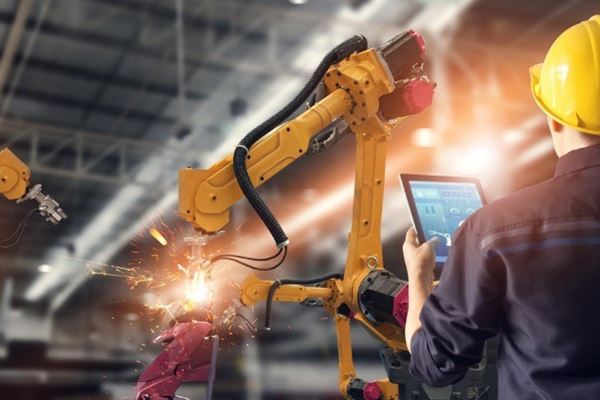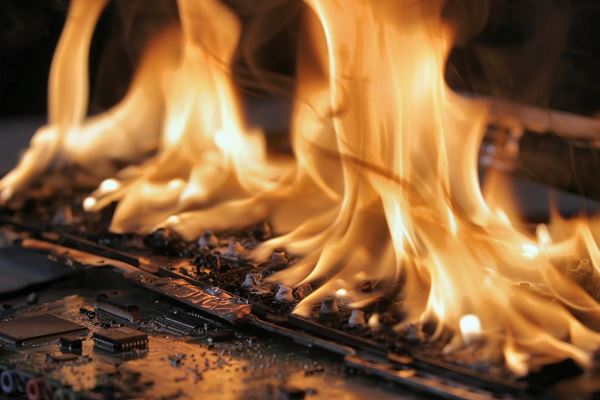Electrical Fires: What You Need to Know About Lithium-Ion Batteries

Lithium-ion batteries (Li Batteries) are very popular, and can generally be found in laptops, tablets, and mobile phones. Li batteries are commonplace because, on a financial scale, the battery type is one of the most energetic rechargeable batteries available. However, aside from the many advantages, there is a small chance that if a Li battery fails, it will burst into flames. And, generally, such failures are exacerbated by the way we treat Li batteries.
Lithium Battery Fires
Li Batteries' fast-charge properties establish that if Li Batteries are charged or discharged too quickly, they can heat up by up to 30 degrees Celsius/86 degrees Fahrenheit. Such an increase in heat and eventual overheating can lead to a chemical reaction between the cathode or anode material and the electrolyte of the battery. Consequently, the electrolyte liquid can dissolve, generating additional heat that aggravates the process. This can lead to combustible gases like methane, ethane, and ethene leaking or escaping from the battery. Binders within the electrolyte of the battery can additionally generate hydrogen, which becomes highly flammable in combination with the oxygen in the air.
Fire ignition establishes that the cathode of the battery can catch fire. The burning lithium creates a metal fire existing at temperatures of 2,000 degrees Celsius/3632 degrees Fahrenheit. Attempting to douse the fire with water is inadvisable since this could lead to a hydrogen gas explosion!
With this information, it may be unclear why so many companies and manufacturers choose to use Li batteries, knowing this concern. But, like most things, Li batteries possess several great advantages along with their disadvantages.
Advantages and Disadvantages of Lithium Batteries
Li Batteries possess many important benefits over competing technologies:
- Li batteries are generally much lighter than other types of rechargeable batteries of the same size. The electrodes of a lithium-ion battery are made of lightweight lithium and carbon.
- Lithium is also a highly reactive element, meaning that a lot of energy can be stored in its atomic bonds. This translates into a very high energy density for lithium-ion batteries.
- Li batteries hold their charge. A lithium-ion battery pack loses only about 5% of its charge per month, compared to a 20% loss per month for NiMH batteries.
- Li batteries have no memory effect, which means that you do not have to completely discharge them before recharging, as with some other battery chemistries.
- Li batteries can handle hundreds of charge/discharge cycles.
Li Batteries also possess a few disadvantages as well, aside from the common one stated above; they are combustible. Other disadvantages include:
- Li batteries start degrading as soon as they leave the factory. They will only last two or three years from the date of manufacture whether you use them or not.
- Li batteries are extremely sensitive to high temperatures. Heat causes lithium-ion battery packs to degrade much faster than they normally would.
- If a Li battery completely discharges the battery is ruined.
- A Li battery pack must have an onboard computer to manage the battery. This makes Li Batteries more expensive than they already are.
In short, it is important to use caution when charging Li batteries. When using laptops, tablets, and mobile phones in general, provide the Li battery with sufficient space to dissipate heat. Don't charge laptops, tablets, or mobile phones underneath pillows, duvets, or the like.
Nuestros consultores están listos para ayudar.



